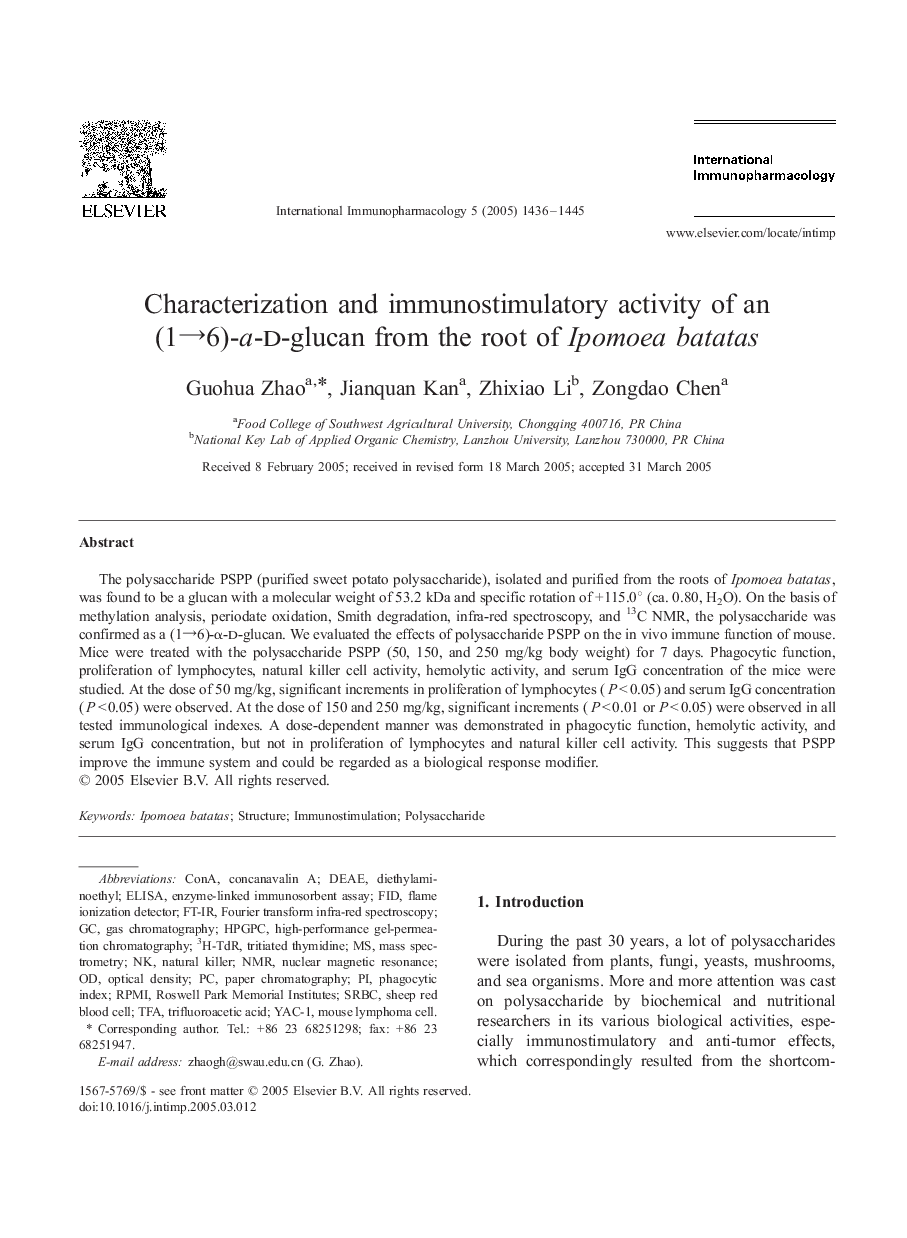| Article ID | Journal | Published Year | Pages | File Type |
|---|---|---|---|---|
| 9008021 | International Immunopharmacology | 2005 | 10 Pages |
Abstract
The polysaccharide PSPP (purified sweet potato polysaccharide), isolated and purified from the roots of Ipomoea batatas, was found to be a glucan with a molecular weight of 53.2 kDa and specific rotation of +115.0° (ca. 0.80, H2O). On the basis of methylation analysis, periodate oxidation, Smith degradation, infra-red spectroscopy, and 13C NMR, the polysaccharide was confirmed as a (1â6)-α-d-glucan. We evaluated the effects of polysaccharide PSPP on the in vivo immune function of mouse. Mice were treated with the polysaccharide PSPP (50, 150, and 250 mg/kg body weight) for 7 days. Phagocytic function, proliferation of lymphocytes, natural killer cell activity, hemolytic activity, and serum IgG concentration of the mice were studied. At the dose of 50 mg/kg, significant increments in proliferation of lymphocytes (P < 0.05) and serum IgG concentration (P < 0.05) were observed. At the dose of 150 and 250 mg/kg, significant increments (P < 0.01 or P < 0.05) were observed in all tested immunological indexes. A dose-dependent manner was demonstrated in phagocytic function, hemolytic activity, and serum IgG concentration, but not in proliferation of lymphocytes and natural killer cell activity. This suggests that PSPP improve the immune system and could be regarded as a biological response modifier.
Keywords
3H-TdRHPGPCDEAEConASRBCRPMIConcanavalin ATFAnuclear magnetic resonancenatural killerflame ionization detectorTrifluoroacetic acidImmunostimulationFourier Transform Infra-Red SpectroscopyEnzyme-linked immunosorbent assayELISANMRtritiated thymidineFIDdiethylaminoethylStructureIpomoea batatasphagocytic indexMass spectrometryFT-IRPolysaccharideoptical densitypaper chromatographyGas chromatographySheep Red Blood Cell
Related Topics
Life Sciences
Immunology and Microbiology
Immunology
Authors
Guohua Zhao, Jianquan Kan, Zhixiao Li, Zongdao Chen,
